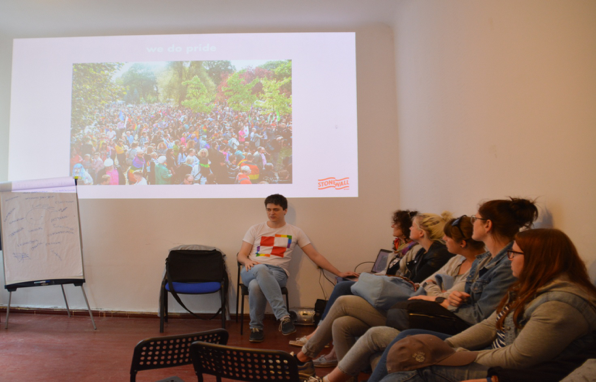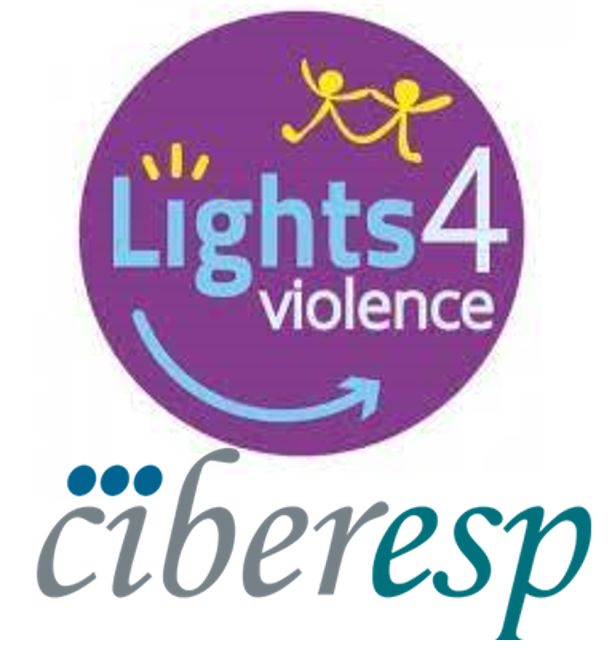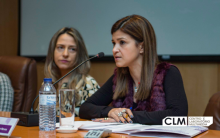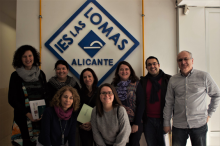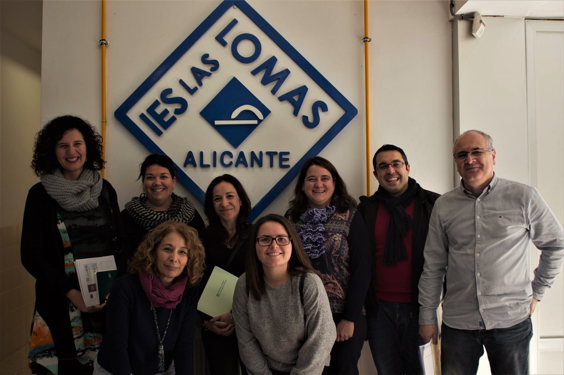Table of Contents
- EDITORIAL: INCREASING SELF-ESTEEM AND TRUST TO PROTECT TEENAGERS AGAINST DATING VIOLENCE
- Carmen Vives on UMH radio
- Portuguese team met Municipality of Matosinhos
- THE PILOT STUDY OF LIGHTS4VIOLENCE
- PUBLISHED PAPER
- "Can bad men change?"
- BOOKS PRESENTATIONS
- UNIVERSITY OF ALICANTE TEAM AT LAS LOMAS SECONDARY SCHOOL CENTER
- International scientific students’ camp at the Faculty of Educational Studies AMU in Poznan
EDITORIAL: INCREASING SELF-ESTEEM AND TRUST TO PROTECT TEENAGERS AGAINST DATING VIOLENCE
Promoting adolescents’ capabilities to improve their intimate relationships with their peers is the first important step to contrast the urgent phenomenon of intimate partner violence among adolescents.
One in five young people, from 15 to 18 years, in UK and Spain, have experienced physical, psychological and sexual violence in teenage relationships. In Italy, more than 2 milion people (5% of the Italian population from 14 to 65 years) experienced sexual abuses before the age of 18 (ISTAT, 2018).
We consider dating violence (DV) among adolescents as a "public health priority" and a "question of human rights" due to its consequences for young's health in the short and long term. Among these we can mention health consequences like psychopathological symptoms (from anxiety, depression to eating disorders and reported suicidal ideation or attempts - Murray, Wester, & Paladino, 2008); health risk behaviors such as alcohol and substance abuse, and non-safe sexual practices (Exner-Cortens, Eckenrode, & Rothman, 2013). Moreover, such traumatic events experienced early in life also limit life chances for young people in socio-economic terms.
To contrast this phenomenon a positive thinking approach is needed, which means encouraging adolescents in challenging sexist and tolerant attitudes towards gender-based violence and dating violence.
Our project, “Lights, Camera and Action Against Dating Violence” (Lighst4Violence), contributes to education and awareness-raising about the importance of positive interpersonal relationships based on self-esteem and trust. It is aimed at promoting skills to manage conflicts through interpersonal communication, mediation and negotiation among youth. Therefore Lights4Violence aims at empowering young people to be aware of their rights and those of their peers to increase their self- esteem and to protect themselves from at-risk or abusive relationships.
Our group involves researchers working in different European countries such as Spain, Portugal, Italy, Romania, Poland and United Kingdom, in collaboration with teachers, to challenge sexist and tolerant attitudes towards gender-based violence and dating violence, providing them tools to build positive interpersonal relationships based on self-esteem and trust.
If you believe that promoting protective factors, such as trust, recognition of diversity, and mutual respect and friendships a way to prevent dating violence, follow us on Facebook (www.facebook.com/Lights4Violence/); twitter (@lights4violence) and visit our website www.lights4violence.eu
Edited by the Lumsa team
LIGHTS4VIOLENCE TEAM AT THE KICK OFF MEETING IN MADRID
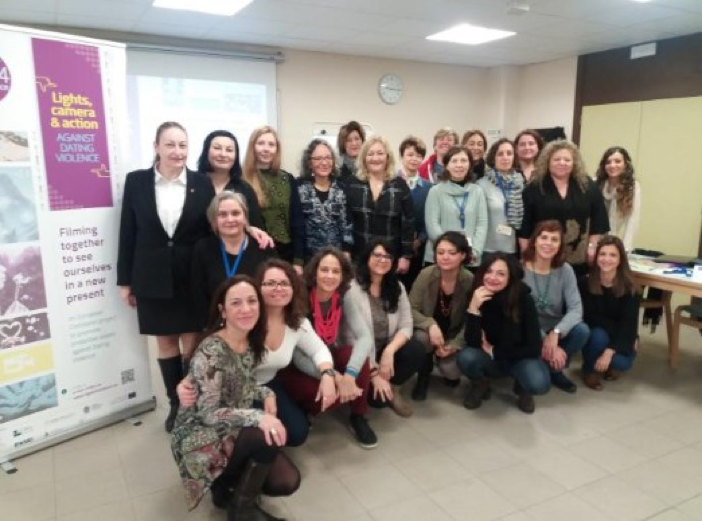
Carmen Vives on UMH radio
Carmen Vives, the main coordinator of Lights4Violence’s Project, was interviewed by UMH radio of Miguel Hernández University. The interview aimed at publicizing the Project, and she highlighted the most important aspects of the Project.
Source: http://radio.umh.es/2018/05/22/carmen-vives-en-tu-salud-al-dia-22-de-mayo-de-2018
Portuguese team met Municipality of Matosinhos
The Portuguese team met with the Municipality of Matosinhos inviting it to be a partner of Lights4Violence. The invitation was enthusiastically accepted and the Project was later presented to an existing working group on dating violence in order to inform other entities about the ongoing work.
SOFIA NEVES, COORDINATOR OF THE PORTUGUESE TEAM OF L4V
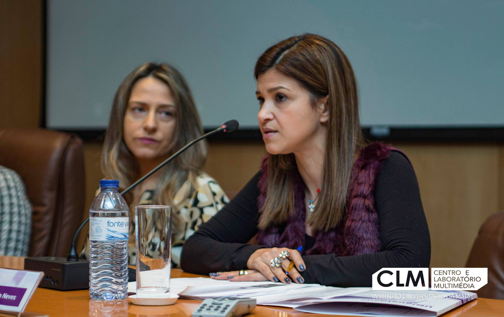
THE PILOT STUDY OF LIGHTS4VIOLENCE
Nowadays the Spanish, Italian and Romanian team carried out the pilot study for Lights4Violence project. The objective of the pilot study is to evaluate and adapt the online questionnaire that we will use to evaluate the results in the intervention and control group.
In Spain the pilot study included 23 students. Most of the (91%) were 15 years old. In Romania, the pilot study included 31 students aged between 17 and 15 years. In Italy, the pilot study included 18 students. Most of them aged in the 15th(72,2%). In Spain students took a mean of 67 minutes to complete the survey. In Romania and Italy, students took an average of 42 minutes to complete the survey. In these countries –Romania and Italy-, households have a medium-high socio-economic position, measured by the main activity of the parents and the highest level of education of the parents. In Spain household socioeconomic level is lower with a 25% of parent’s unemployment.
The main results emerged by the study is that more than half (71% in Romania and Spain and 66.6% in Italy) has ever been in a dating relationship. 50% of Spanish student, 45% of Romanian and 56% of Italians know some women who have experienced intimate partner violence. Bullying became the most frequent violent behavior. In Romania, 16.1% of students bullied someone and 38.7% were bullied. In Italy, 16.7% of students bullied someone and 33.4% were bullied. In Spain the 13% referred control dating violence.
TEAMS AT WORK FOR THE SURVEY
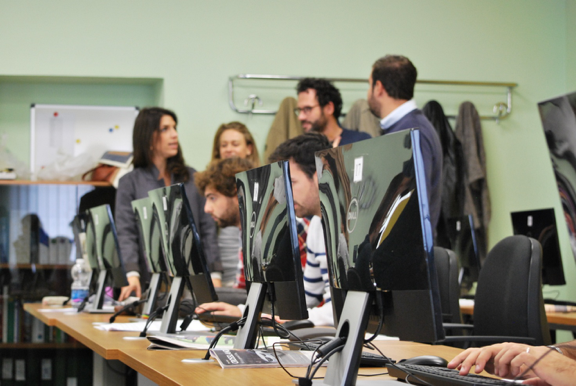
PUBLISHED PAPER
Dr. Beatrice Ioan - member of Light4Violence Project and Professor of Forensic Medicine- together with her colleagues, has recently reviewed the literature on the postmodern approach to domestic violence.
The acts of violence, in all their forms, constitute a serious violation of human rights. Domestic violence includes “all acts of physical, sexual, psychological or economic violence”, that occur in a vast conjugal setting – “within the family or domestic unit or between former or current spouses or partners, whether or not the perpetrator shares or has shared the same residence with the victim” (Council of Europe, 2011).The examples also include verbal threats, public humiliation, destruction of property, abuse of children, sexual abuse and life-threatening acts (Harway et al., 2002).
Hanganu B, Crauciuc D, Petre-Ciudin V, Velnic AA, Manoilescu I, Ioan BI (2017). Domestic Violence in the Postmodern Society: Ethical and Forensic Aspects. Postmodern Openings, Volume 8, Issue 3, December, pp. 46-58.
read more at http://lumenpublishing.com/journals/index.php/po/article/view/178
Belén Sanz-Barbero (member of Ligths4Violence project) and Carmen Vives-Cases (Coordinator of Lights4Violence project) published a paper about prevalence and associated factors of intimate partner violence against young women in Europe. The paper assesses the prevalence and main characteristics of experiencing physical and/or sexual and psychological-only IPV among young women in the European Union and identify individual and contextual associated risk factors. The results show that having suffered physical and/or sexual abuse by an adult before age 15 was the strongest risk factor for IPV. Other individual risk factors were: perceived major difficulties in living within their household income, having children and age 18–24 years for physical/sexual IPV and immigration background for psychological-only.
Moreover living in countries with a higher prevalence of binge drinking or early school dropout was positively associated with IPV. Therefore, the fight against violence in young women should consider individual characteristics, childhood experiences of abuse and also structural interventions including reduction of alcohol consumption and improvement in the education-related indicators.
Sanz-Barbero, B., Pereira, P. L., Barrio, G., & Vives-Cases, C. (2018). Intimate partner violence against young women: prevalence and associated factors in Europe. J Epidemiol Community Health, jech-2017. doi: 10.1136/jech-2017-209701.
read more at http://jech.bmj.com/content/early/2018/03/08/jech-2017-209701
Another important study by our partners of Lights4Violence - Belén Sanz-Barbero (member of ISCIII team), Carmen Vives-Cases (Coordinator of L4V) and their colleagues is in press. The study analyzes whether there are time patterns in different intimate partner violence (IPV) indicators and aims to obtain models that can predict the behavior of these time series.
The results show that the daily number of calls to the 016 telephone IPV help line decreased during January 2008-April 2012 and increased during April 2012–December 2015. No statistically significant change was observed in the trend of the number of daily IPV police reports. The number of IPV police reports filed increased on weekends and on Christmas holidays. The number of calls to the 016 IPV help line increased on Mondays. Using data from 2008-2015, the univariate ARMA models predicted 64.2% of calls to the 016 telephone IPV help line and 73.2% of police reports filed during 2016 in the Community of Madrid.
The study suggests the need for an increase in police and judicial resources on non-work days. Also, the 016 telephone IPV help line should be especially active on work days.
Read more: Sanz-Barbero, B., Linares, C., Vives-Cases, C., González, J. L., López-Ossorio, J. J., & Díaz, J. (2018 in press). Intimate Partner Violence in Madrid: A Time Series Analysis (2008-2016). Annals of Epidemiology
"Can bad men change?"
The cover of Time magazine of M21 titles: "Can bad men change?". It is an important issue to reflect on the consequences of rehabilitation and punitive measures. If, on one hand, rehabilitation contrasts with the impulse to "push these men to the periphery of society forever", on the other hand punitive measures alone do not guarantee the community safety.
RIME COVER MAY 21 2018
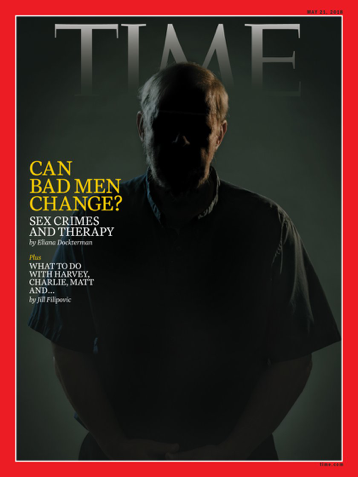
source: http://time.com/magazine/us/5272326/may-21st-2018-vol-191-no-19-u-s/
BOOKS PRESENTATIONS
In February our researchers of the Portuguese Team - Sofia Neves and Ariana Correia - presented a scientific book, edited by them, entitled Dating Violence. The book collects the contributions of several specialists on the subject.
Neves, S. & Correia, A. (2018). Violências no Namoro (Dating Violence). Maia: Edições ISMAI.
BOOK COVER OF VIOLÊNCIAS NO NAMORO EDITED BY SOFIA NEVES & ARIANA CORREIRA
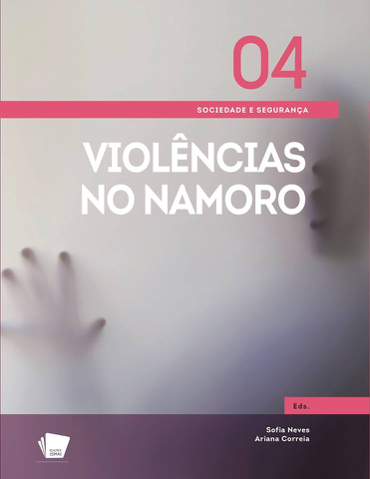
THE AUTHORS: SOFIA NEVES AND ARIANA CORREIA
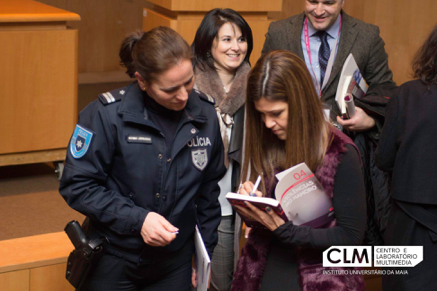
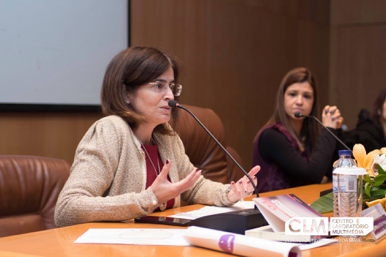
In her book, Cristina Pereira Vieira argues that young people may be using different terms to refer to different expressions of affective-based relationships in which they engage. These terms vary even within a single culture (Vieira, 2012) and justify using the terms of the young people in the processes of communication with them. This is why awareness campaigns need to use terms that make sense to young people if they really want to reach the target.
Vieira, C. P. (2012). Eu Faço Sexo Amoroso. Lisboa: Editorial Bizâncio
BOOK COVER OF"EU FAÇO SEXO AMOROSO" BY CRISTINA PEREIRA VIEIRA
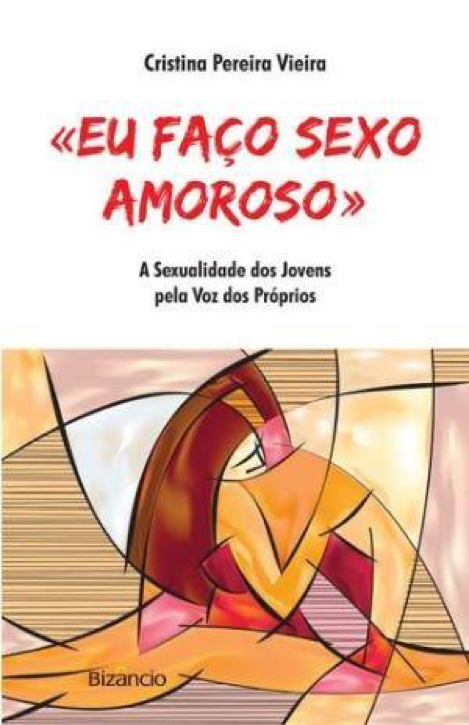
International scientific students’ camp at the Faculty of Educational Studies AMU in Poznan
An international scientific students’ camp -The support of adolescents in difficult life situation. School and other institutions- took place at the Faculty of Educational Studies AMU in Poznan. One of the camp's program committee members was Sylwia Jaskulska, participant of the Lights4Violence Project.
The participants (about 30 pedagogy and social work students from Poland and Germany) visited several associations supporting young people and their families. One of the visited institutions was the Stonewall Group, association for LGBT people in Poland. The discussion concerned difficulties that affect LGBT families in Poland and possible ways of suporting them by non-governmental organizations.
The camp was organized by the Faculty of Educational Studies AMU School Pedagogy Unit in cooperation with the Evangelische Hochschule in Darmstadt.
PARTICIPANTS TO THE CAMP
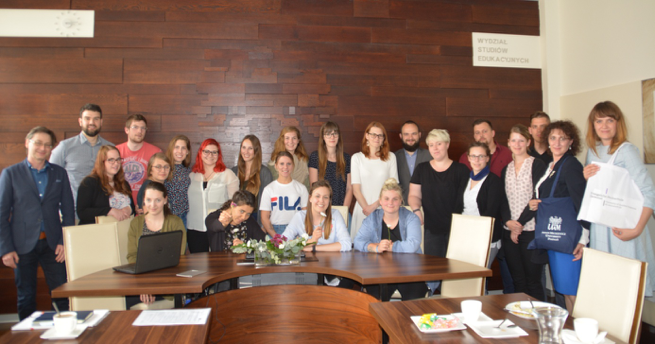
CAMP ACTIVITIES
